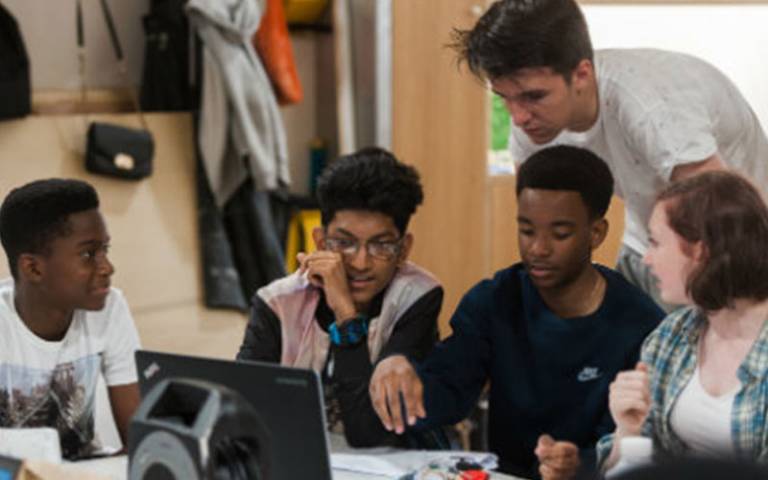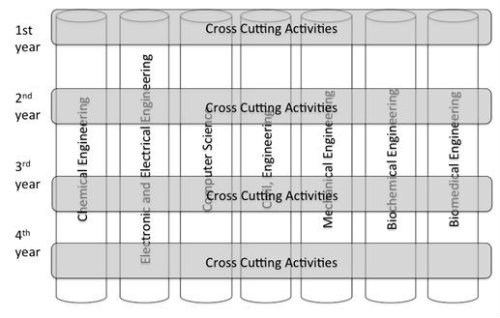The Integrated Engineering Programme (IEP) and how it works
The IEP is a common framework for UCL undergraduate Engineering programmes that draws on the Connected Curriculum philosophy to tap into UCL’s renowned research-base. Liz Jones explains.

5 August 2015
Liz Jones is Principal Teaching Fellow and Geomatic Systems Manager in UCL Civil, Environmental & Geomatic Engineering and explains that the Integrated Engineering Programme (IEP) is founded on the premise that although a strong disciplinary engineering foundation is vital, modern engineering problems do not respect these disciplinary boundaries.
This means that students have to learn to work in multi-disciplinary teams on interdisciplinary problems.
The Integrated Engineering Programme gives students a strong base in fundamental mathematics and engineering science, accompanied by highly developed problem solving and communications skills.
The Integrated Engineering Programme has put in place a common framework for teaching across the Faculty of Engineering Science that enables regular cross-cutting activities across all disciplines.
Within this framework, a set of core curriculum elements are taught alongside discipline-specific components throughout the entire undergraduate degree programme. The core courses provide students with engineering modelling, design and analysis skills, in addition to professional and transferable skills.
These skills are delivered within the context of engineering problem solving.

A programme specifically designed to enable students to learn workplace skills
The programme allows students to develop skills such as the below.
Appreciating the interdisciplinary nature of engineering
The programme starts with an element of the first term where students work in interdisciplinary teams, they are then encouraged to broaden their disciplinary knowledge in the second and third year through the minors programme and have the opportunity to engage in a major interdisciplinary capstone project.
Engaging in practical engineering from the start
The first term set large challenges to engage the students in sizable real world problems. This is followed up with project-based activities in the form of scenarios throughout the first two years.
Acquiring design and professional practice skills
Aligned to the practical activities is a comprehensive programme of design and profession practice to develop students’ skills in the context of engineering problems.
Having the opportunity for personalised learning
The programme integrates a strong personal tutoring element, with elements of the core teaching that allow students to personalise learning based on preferred style and need.
Mastering core disciplinary concepts delivered in in the context of departmental and interdisciplinary research
Although working in interdisciplinary teams, student will also start developing a strong disciplinary identity and a sense of belonging to their department from the start of the programme.
As they progress they will have opportunities to see and engage with the leading research activities of the department and faculty. The minor programme provides coverage of the key interdisciplinary research areas within the faculty.
 Close
Close

